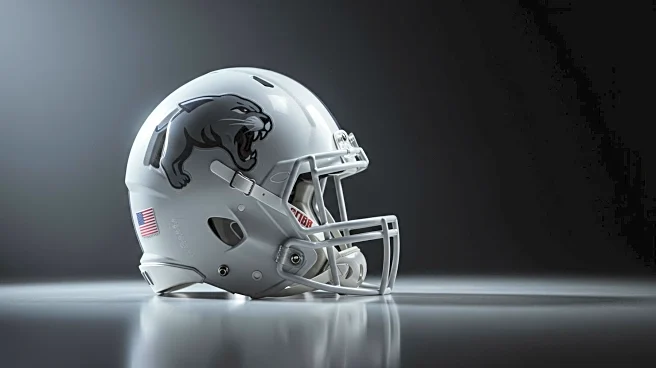What's Happening?
BYU has announced that true freshman Bear Bachmeier will start as quarterback in the upcoming game against Portland State. Bachmeier, who transferred from Stanford, was competing against Treyson Bourguet and McCae Hillstead for the position. This decision comes after former starting quarterback Jake Retzlaff left BYU due to honor code violations. Retzlaff, now at Tulane, faced suspension for alleged premarital sex, which is against BYU's honor code. Bachmeier's appointment marks the first time a true freshman will start a season opener for the Cougars. He is the brother of Hank Bachmeier, a former quarterback at Boise State, Wake Forest, and Louisiana Tech.
Why It's Important?
The decision to start Bear Bachmeier is significant for BYU as it marks a shift in their quarterback lineup following the departure of Jake Retzlaff. Retzlaff's exit due to honor code violations highlights the strict adherence to moral codes at BYU, impacting player availability and team dynamics. Bachmeier's role as a starter could influence BYU's performance in the upcoming season, especially given his status as a true freshman. This move also underscores the importance of recruiting and developing young talent in college football, as teams often rely on fresh players to fill critical positions.
What's Next?
BYU will face Portland State in their season opener, with Bachmeier leading the team. The game will be a test of Bachmeier's capabilities and his adaptation to the starting role. Following this, BYU is set to host Stanford, Bachmeier's former team, in Week 2, which could present an interesting dynamic given his recent transfer. The team's performance in these initial games will likely influence their strategy and lineup decisions for the rest of the season.
Beyond the Headlines
Bachmeier's choice of jersey number, 47, is unusual for a quarterback, typically associated with positions like linebacker or fullback. This choice reflects his personal style and could become a unique identifier for him on the field. Additionally, the situation with Retzlaff highlights the intersection of personal conduct and institutional policies in college sports, raising questions about how such policies affect athletes' careers and team composition.










